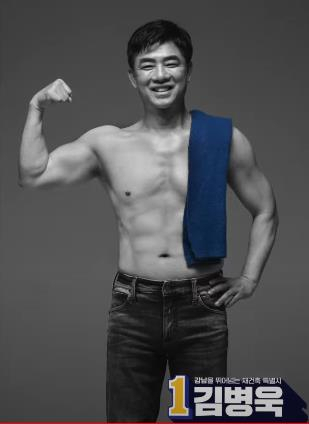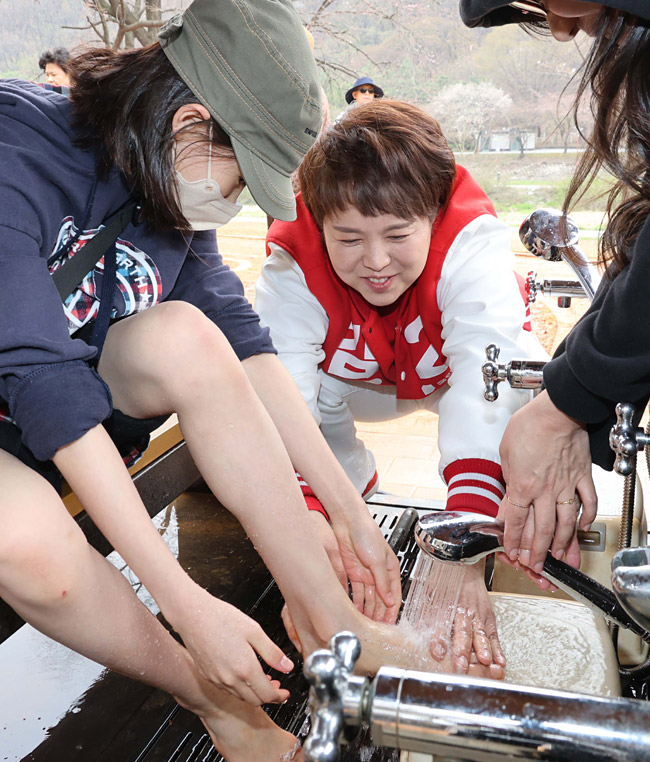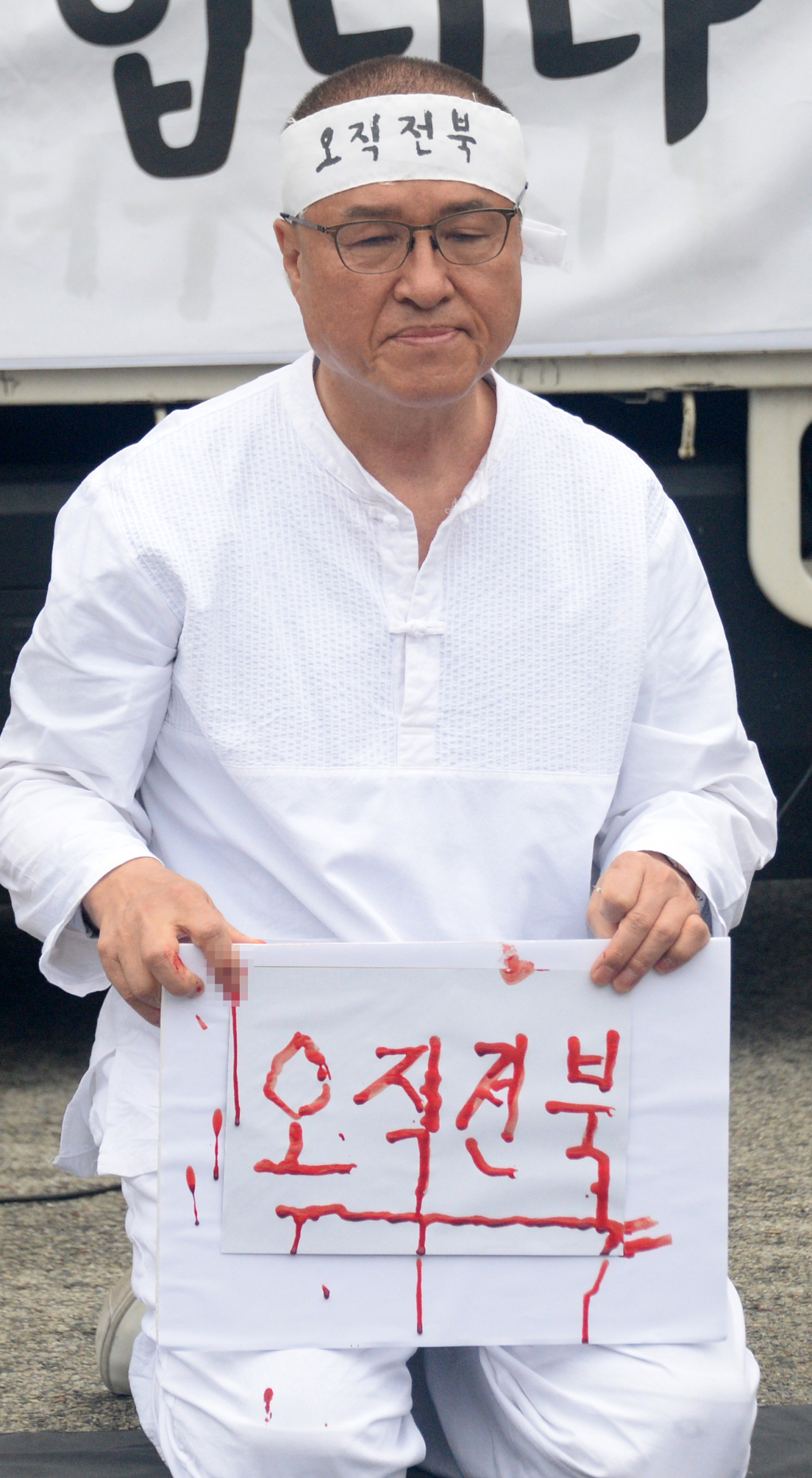 |
Democratic Party of Korea Rep. Kim Byung-wook, a candidate for the Bundang-B constituency in Seongnam, Gyeonggi Province, poses shirtless in a photo he posted on his YouTube channel. (Kim Byung-wook YouTube) |
As South Koreans go to the polls to elect the 300 members of the National Assembly on Wednesday, political candidates have fully ramped up efforts to court voters.
Walking down practically any main street at the moment, one will easily spot rallies of candidates and supporters singing theme songs with politically tweaked lyrics and flamboyant dance routines.
Others have taken more unconventional turns in the outreach. One candidate was seen barefoot greeting visitors at the red clay road in Gumi-dong, Seongnam, Gyeonggi Province, washing the feet of citizens, while others walked the streets and lowered themselves in a bow every three steps, undertaking a Buddhist practice to show determination.
 |
Kim Eun-hye, a candidate for the People's Power Party in Seongnam, Gyeonggi Province, washes the feet of public members at a red clay road. (Kim Eun-hye campaign) |
Among the more peculiar election crusades, one stripped down to seize the attention of voters.
Main opposition Democratic Party of Korea Rep. Kim Byung-wook, who is running for the Bundang-B constituency in Seongnam, shared a picture of himself shirtless, posing for a "body profile."
Once reserved for professional athletes and models, the body profile has become a common way for people in Korea to flex their muscles in professional photo shoots. The activity gained in popularity during the COVID-19 era, as people in their 20s and 30s focused on their physical health and improving their appearance.
Kim uploaded his photo shoot to his YouTube channel, saying he would "rewrite the profile of Bundang."
"Rather than just talking about what is right and wrong, I thought it would be more authentic to show my commitment and determination through a body profile, by working out hard for two to three months," Kim said on a political radio show.
Some cheered the candidate, commenting on his passion. Others criticized him for "crossing the line," urging the candidate to focus on political agendas rather than "having fun."
 |
Rep. Chung Woon-chun, a candidate representing the People Power Party, displays a poster that reads "Only North Jeolla Province," after writing the message with blood from his finger. (Yonhap) |
Others have taken more extreme steps. Rep. Chung Woon-chun, a candidate representing the People Power Party in Jeonju, North Jeolla Province, drew blood from his fingers to write "Only North Jeolla Province" on a campaign poster.
Chung, wearing white mourning clothes, appealed to voters about his concerted will to develop the province, while apologizing for the anger of the people toward the government. This event came seven days after a stunt where he had shaved his head and locked himself in a wooden cage cart, a wagon used to transport prisoners in the Joseon era.
Meanwhile, an unexpected vegetable is animating the political landscape in South Korea.
Candidates from the Democratic Party are using green onions as a political item after President Yoon Suk Yeol's comment on their price was criticized for underestimating food prices and being out of touch with reality.
Jeon Eun-soo from the main opposition party running in the Nam-gu A constituency in Ulsan uploaded the "green onion challenge," dancing to an animated character's moves holding a green onion. Others have been bringing green onions to campaign rallies.
The "Green onion challenge" has been spreading among politicians, who post on their social media platforms the price in grocery stores and markets.
Earlier, Yoon, looking at a bundle of green onions with a price tag of 875 won ($0.65), a temporary discount price offered with a government subsidy, and said that the "price is reasonable."
Meanwhile, the average retail price of green onions has hovered around 3,000 to 4,000 won over the past weeks, at a high point in recent years.




![[Exclusive] Hyundai Mobis eyes closer ties with BYD](http://res.heraldm.com/phpwas/restmb_idxmake.php?idx=644&simg=/content/image/2024/11/25/20241125050044_0.jpg)
![[Herald Review] 'Gangnam B-Side' combines social realism with masterful suspense, performance](http://res.heraldm.com/phpwas/restmb_idxmake.php?idx=644&simg=/content/image/2024/11/25/20241125050072_0.jpg)

